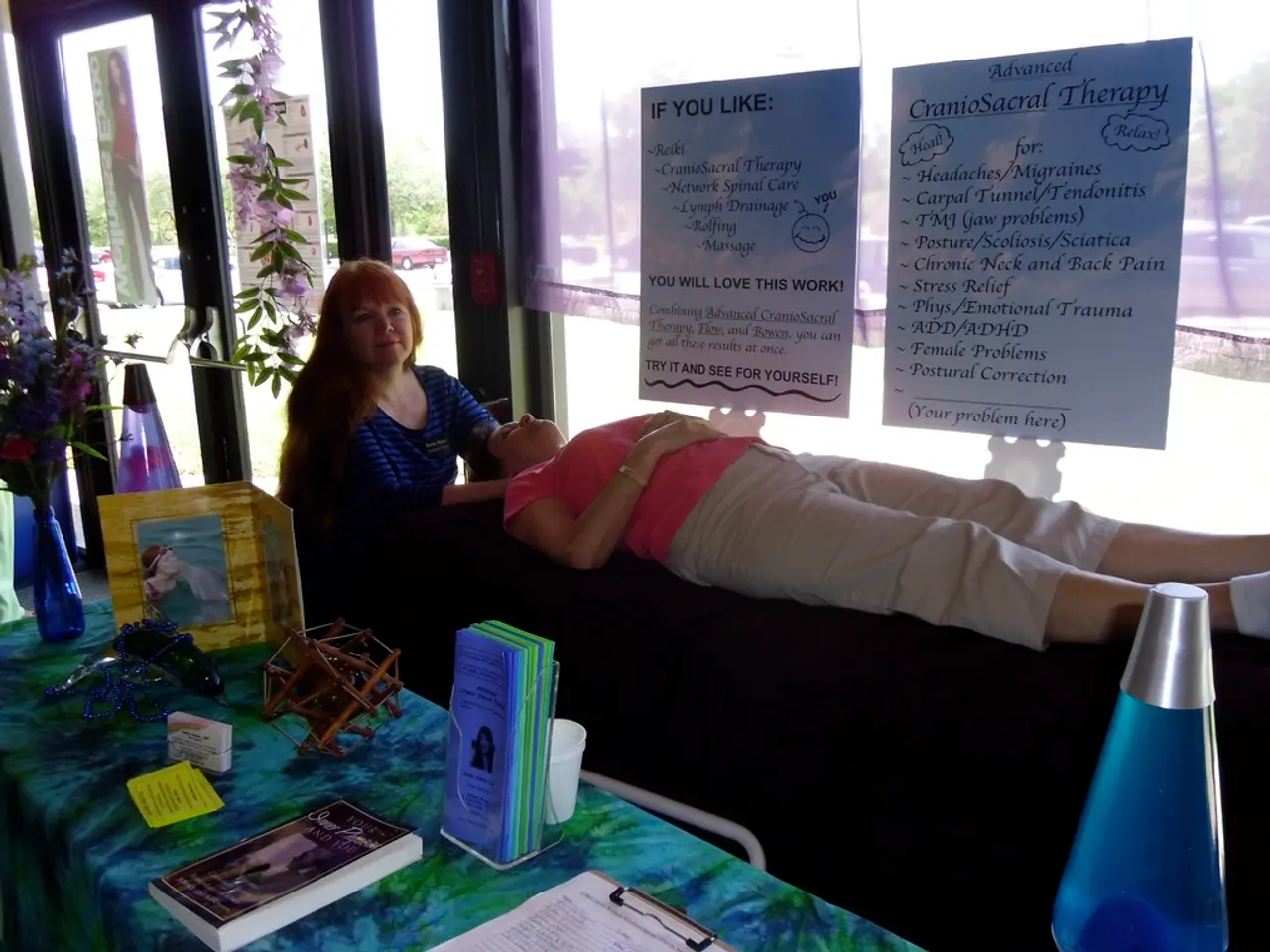Hynotic treatment for sleep disorders
In the realm of sleep disorders, the National Sleep Foundation's "sleep hygiene" tips serve as a foundation for good sleep practices. These include establishing a consistent sleep schedule, maintaining a quiet, dark, and relaxing bedroom environment, and avoiding electronic devices, large meals, caffeine, and alcohol before bedtime.
However, when it comes to treating chronic insomnia, the most effective non-pharmacological treatment is cognitive behavioral therapy for insomnia (CBT-I). According to recent evidence, digital CBT-I has shown robust efficacy, particularly in older adults, with nearly half achieving significant improvements.
On the other hand, the evidence for hypnosis and other relaxation techniques for treating insomnia is less conclusive. While hypnosis may have some effect on sleep or relaxation, comprehensive or head-to-head trials with CBT-I are lacking. A review of 24 papers found that while 58.3% reported a benefit from hypnosis for sleep outcomes, 29.2% reported no benefit, and the body of evidence has not yet allowed researchers to draw firm conclusions regarding its effectiveness.
Meditation, however, may help some people with insomnia, with moderate evidence showing that it significantly improves sleep quality.
The American Association of Professional Hypnotherapists warns against thinking of hypnosis as a treatment or cure for mental illness. The hypnotized person remains in control during hypnosis and has no obligation to follow the hypnotherapist's suggestions. Hypnosis for insomnia involves relaxation and placing a person in a trance-like state to let go of anxiety. Self-hypnosis is similar to meditation and can be attempted by individuals.
Herbal remedies such as lavender, valerian, and chamomile may also help some people relieve anxiety and improve the quality and duration of their sleep. Chamomile extract, in particular, has been shown to significantly improve sleep quality in older people.
However, there are concerns about the diversity in study designs, interventions, controls, comparators, hypnosis definitions, and techniques, as well as the lack of double-blind studies and quantifiable measurement criteria. The sample numbers in the available studies are often too small to show significance or be representative.
In conclusion, while hypnosis may help some people with insomnia, the evidence for its effectiveness compared to CBT-I is currently inconclusive. More direct and rigorous clinical trials would be needed to clarify the comparative effectiveness of hypnosis for treating insomnia. For those experiencing insomnia in relation to psychosis or suicidal depression or taking medication for another psychological condition, hypnotherapy should only be received under the supervision of a doctor or psychiatrist.
In the context of health-and-wellness and mental-health, hypnosis, alongside relaxation techniques, is often explored as an alternative method for improving sleep quality. Yet, the science behind its efficacy in treating chronic insomnia, especially compared to cognitive behavioral therapy for insomnia (CBT-I), remains inconclusive, with comprehensive trials and robust evidence still lacking.




